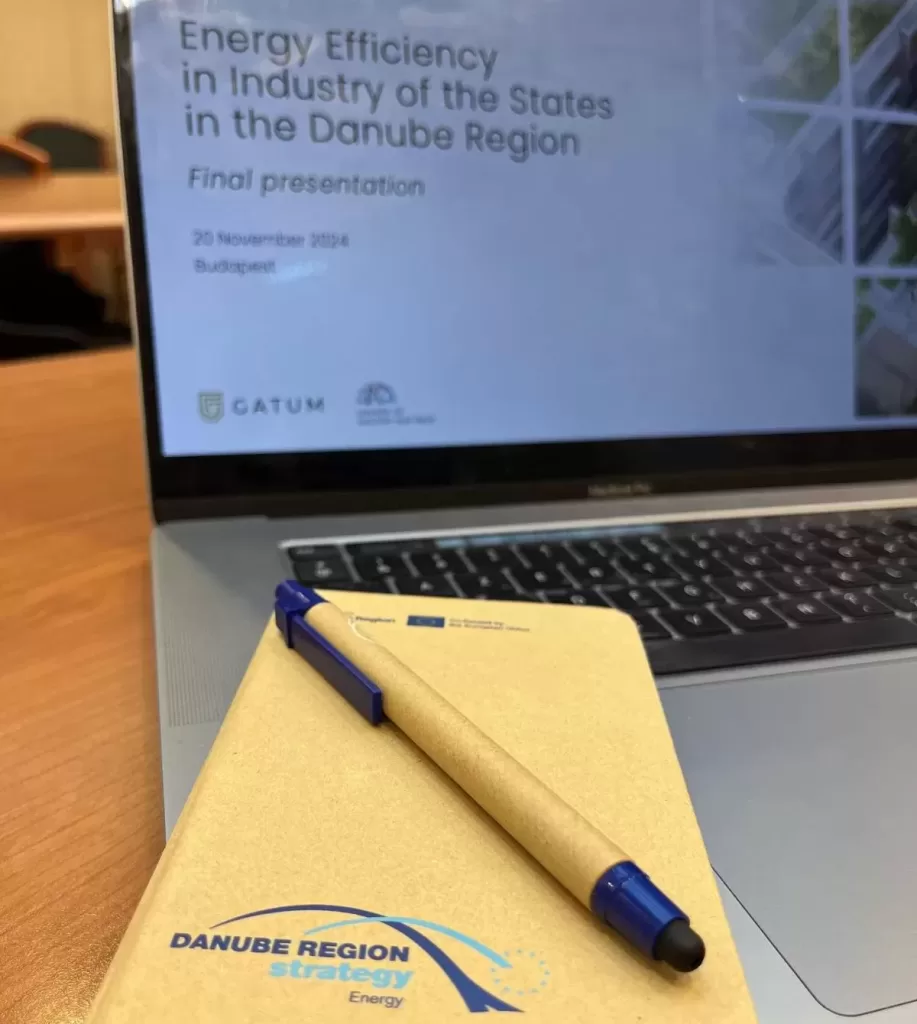3 minutes reading
Related topics
DANUBE
Strategy
Energy
How can the regions of the Danube strategy inspire greater energy efficiency in industry?
At the Ministry of Foreign Affairs and Trade of Hungary in Budapest, we presented the results of a study at the end of November focused on mapping the current state of implementing energy-efficient measures in the industrial sectors of the Danube Strategy countries. The study aimed to identify weaknesses and examples of best practices that could serve as inspiration for institutions in regions where interest from the private sector in this area remains insufficient.

Key findings of the study
The study highlighted the importance of quality and flexibility in managing measures aimed at improving energy efficiency in industry. Unsurprisingly, the success of certain countries was shown to be the result of years of testing various approaches and building trustbetween relevant institutions and businesses. A specific example of best practices is the Austrian model, which includes regular consultations between institutions and industry representatives to align energy audit regulations with realistic expectations.
The study also revealed that a balanced combination of mandatory and voluntary measures is crucial, particularly in countries where the transition to a low-carbon economy is not yet perceived as a priority by society. An inspirational example can be found in voluntary platforms in Bavaria and Baden-Württemberg, which provide small and medium-sized enterprises (SMEs) with access to know-how, contacts, and financial support. These platforms have proven to be an effective tool for engaging businesses across sectors, especially those that lack resources for implementing energy-efficient measures or feel unprepared to meet the minimum requirements of energy audits.
Availability of the Study
The final version of the study will be published at the beginning of 2025 on the official website of the Danube Strategy: https://energy.danube-region.eu/publications/
Other articles
Interested in more?
Feel free to discover all our projects and latest news.


